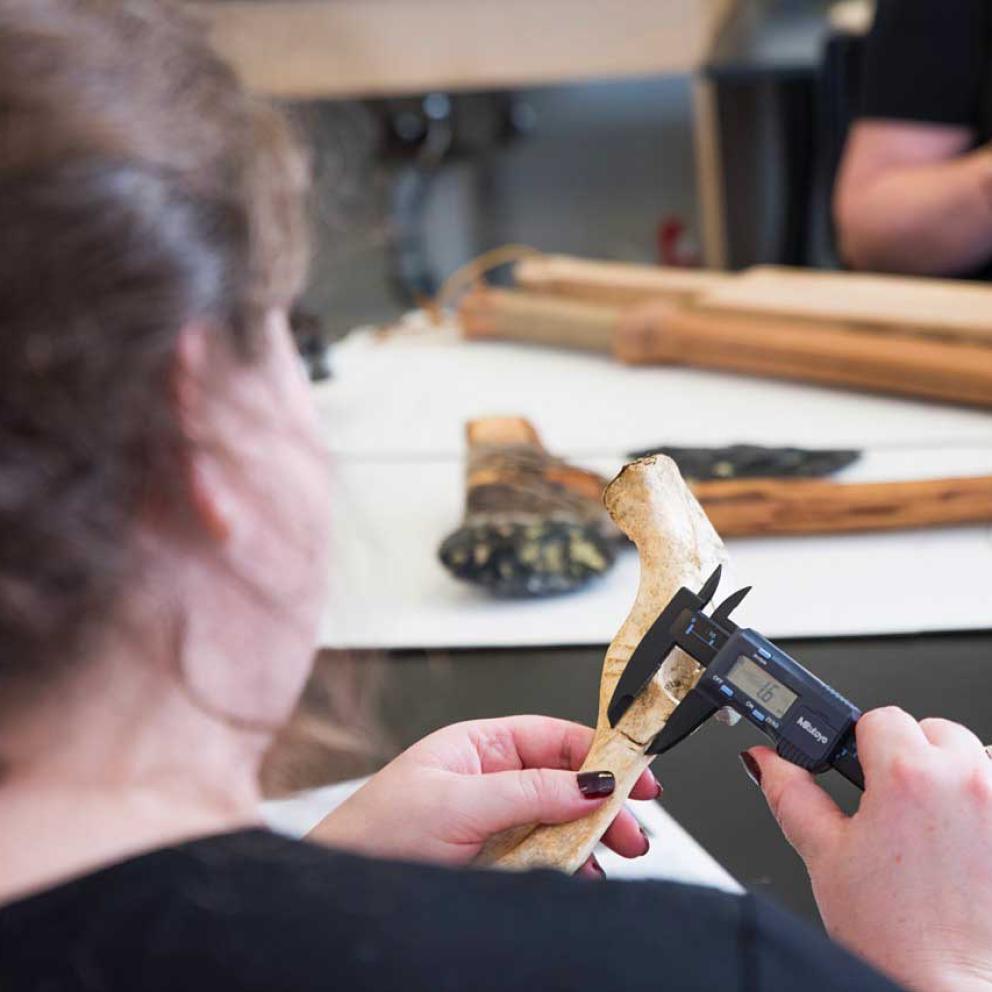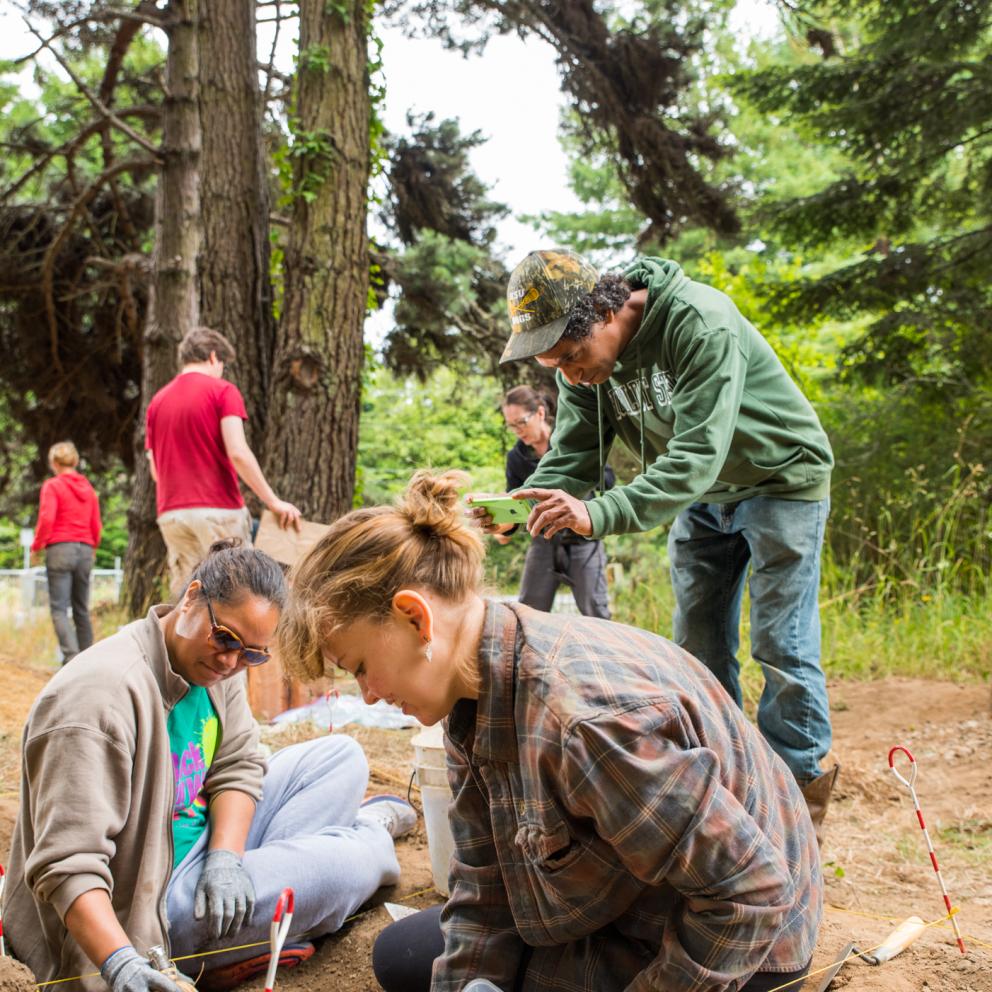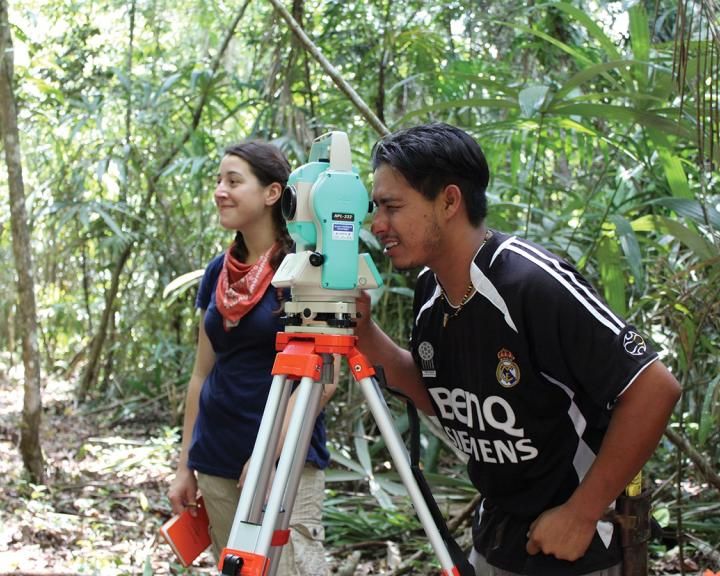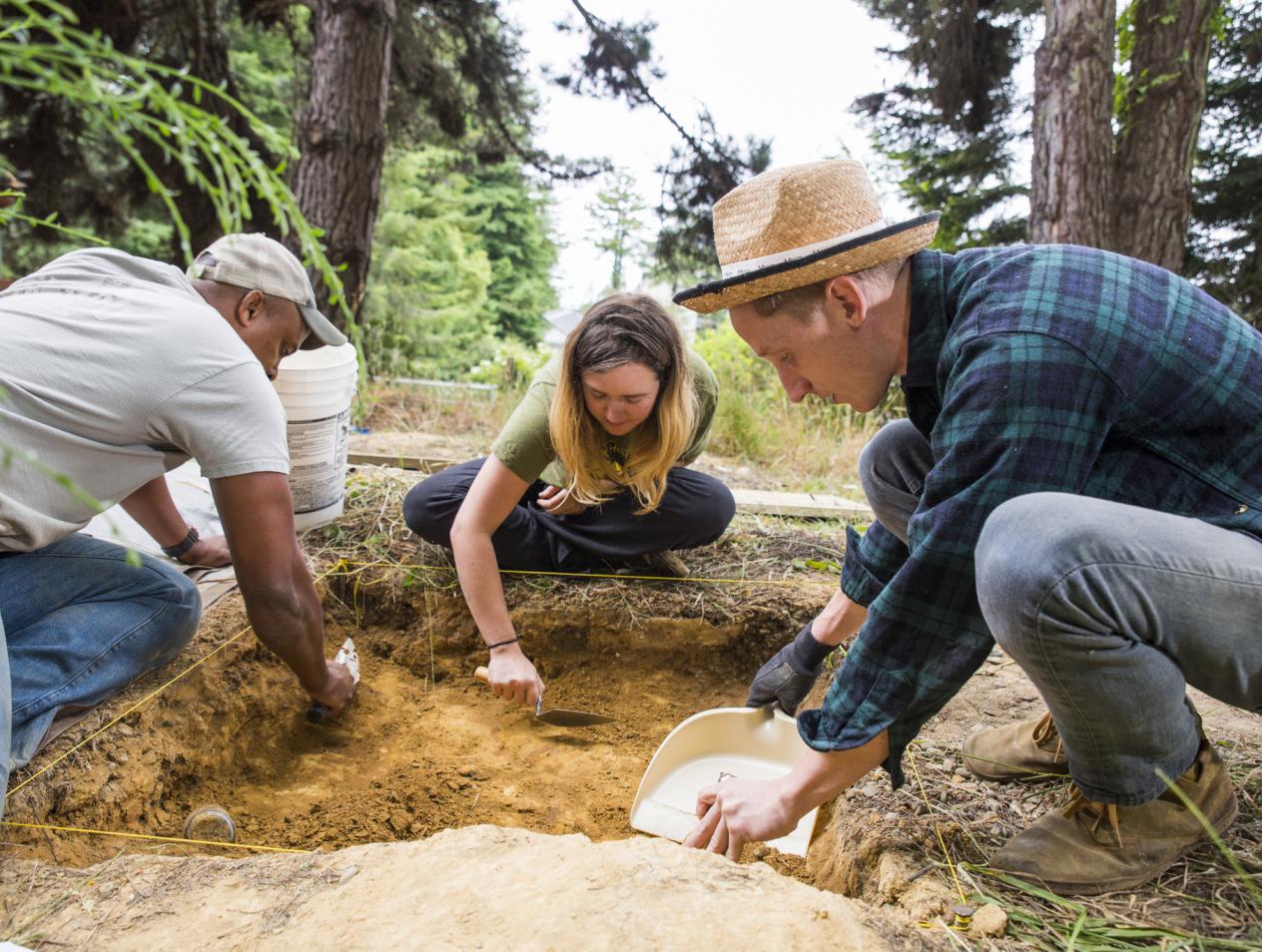Breadcrumb
Anthropology, B.S.
Anthropology is a holistic science dedicated to the study of human cultural and biological diversity and evolution. Anthropology is unique in that it integrates fields of study that traditionally span multiple disciplines in the sciences, arts, and professional studies.
Studying anthropology is a great way to learn about the many significant and intriguing facets of humanity across place and time.
Why this Program
Our research, laboratory, and field experiences are interactive and hands-on, giving you real world experience to prepare for your future.
Our small class sizes mean you get to know your peers and instructors well, developing bonds that help you through your schooling and career.
Anthropology graduates are well suited for the academic, nonacademic, and increasingly global job market, as well as continuation in advanced degree programs.

Program Concentrations
Archaeologists study material remains, the things that people leave behind, including artifacts such as tools and vessels, features such as hearths and buildings, and ecofacts such as animal bones and plant remains. Archaeologists study this evidence and use that information to better understand the cultures that left them behind and to help protect cultural resources.
Biological anthropologists study human biology and evolution across diverse fields: primatologists focus on the behavior, evolution, and conservation of our nonhuman primate relatives; paleoanthropologists focus on the fossil record and genetics, forensic anthropologists analyze skeletal remains in medical, legal, and human rights contexts; and evolutionary health experts use knowledge of evolution to investigate disease and heath.
Anthropology is a holistic science dedicated to the study of human cultural and biological diversity and evolution. Anthropology integrates fields of study that traditionally span multiple disciplines in the natural and social sciences, arts, and professional studies, blurring the lines between these divisions. Anthropologists are in a unique position to make critical scientific interventions in part because the discipline has been engaged in ongoing dialogue on the philosophy of science itself and the conditions that shape knowledge production. Anthropology at Cal Poly Humboldt is centered on critically rethinking and reshaping scientific paradigms, epistemologies, and ethics.
Linguistic anthropology is the dynamic study of language, addressing topics like language formation and spread, how and why languages change over time, and what happens when multiple languages meet. Linguistic anthropologists investigate how language operates in global society. They study symbolic systems, how language varieties relate to culture and society, and how specific linguistic patterns influence language change.
Sociocultural anthropologists investigate ways humans organize themselves, cultural practices, beliefs, meaning and value, and how material and intellectual resources are allocated. Human cultures dynamically change in response to the environment, the people, and other cultures. Sociocultural anthropology promotes an understanding of cultural differences, similarities and negotiations between cultural forms.
Research Facilities & Collections
The Anthropology Department has multiple laboratories, a collections facility, and a simulated archaeological site, which include state-of-the-art technologies. Students and collaborating scientists use these facilities for classes, hands-on training, and to conduct a wide range of innovative research. Anthropology students have presented their findings at professional conferences, co-authored papers in peer-reviewed journals, and won awards and scholarships for their research.

Did you know?
Many of the many meaningful career paths for anthropology graduates is in the area of cultural resources management (CRM). At Cal Poly Humboldt, students have the unique opportunity to work with our on-site CRM firm, the Cultural Resources Facility, which is one of the largest CRM firms in the state that is directly associated with a university.
In addition to our anthropological field schools, many of our students take advantage of Cal Poly Humboldt’s exchange programs, which enable students to travel the world and make hands-on, international experience an integral part of education. Students may receive units of Anthropology major credit for international study.

Careers
Anthropology students gain specialized knowledge and research skills in subfields and world regions through advanced coursework and hands-on laboratory and field experiences. This provides a basis for employment in a wide range of careers and advanced degree programs.
- Archaeologist
- Museum Curator
- Ethnographer
- Linguist
- Cultural Resources Manager
- Paleoanthropologist
- Forensic Anthropologist
- Primatologist
- Environmental Anthropologist
- Medical Anthropologist
- And more!







